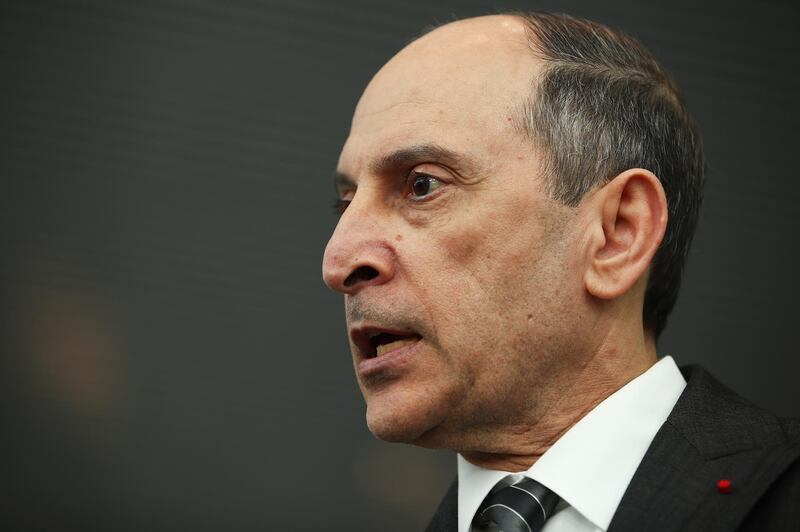Qatar Airways slumped to a loss in the fiscal year ending March 31, citing the Arab boycott of its country that drove up operational costs.
The state-owned carrier posted a loss of 252.47 million Qatari riyals (Dh254m) compared with a profit of 2.79 billion riyals a year ago, it said on Monday. Operating costs rose to 42.2bn riyals from 36.7bn riyals in the previous year.
"This turbulent year has inevitably had an impact on our financial results," said Akbar Al Baker, group chief executive of Qatar Airways.
Saudi Arabia, Bahrain, UAE and Egypt severed commercial and political ties with Qatar in June 2017, accusing the state of supporting extremist groups. The quartet banned Qatar Airways flights in their airspace, forcing the Doha airline to cancel 18 routes and divert others, which increased fuel costs and flight times.
______________
Read more:
Qatar Airways chief executive says a woman is incapable of handling his job
Struggling Qatar Airways expects "very large" annual loss, CEO Says
______________
In the fiscal year ending March, which the airline called the "most challenging" in its 20-year history, Qatar Airways carried 29.2 million passengers down from 32 million a year ago.
Qatar Airways' fuel bill increased to13.3b riyals from 10.2b riyals in the previous year as oil prices rebounded to a three-year high.
The carrier tried to mitigate the effect of the boycott by opening 14 new destinations, increasing flight frequencies on existing routes and wet-leasing planes to airlines including British Airways and Royal Air Maroc. Wet leasing is an arrangement under which an airline (the lessor) provides aircraft, complete crew, maintenance and insurance to another airline.
"New destinations come with launch costs and the necessity to establish market presence, which resulted in an overall net loss," the airline said.
The carrier has started services to secondary and tertiary cities including Penang in Malaysia, Skopje in Macedonia, Adana in Turkey and Pattaya in Thailand.
At the annual meeting of aviation group International Air Transport Association in Sydney in June, Mr Al Baker warned that Qatar Airways could incur another loss in the fiscal year ending March 2019 due to the boycott, depending on how it controls costs and mitigates yields. That means it may need to tap its sole shareholder, the Qatar government, for a capital injection if the ban on the airline continues, he said.
As part of its global expansion drive, Qatar Airways built up minority stakes in Cathay Pacific, Air Italy, British Airways parent IAG and South America's Latam Airlines.
The annual loss was aggravated by the strengthening of the dollar again the Qatari riyal, increase in flight duration and ensuing fuel costs that have resulted from the boycott, Mark Martin, founder of aviation advisory Martin Consulting, said.
Qatar's realignment of its fleet and routes over the next six months could help improve their earnings, Mr Martin said.
The airline's revenue however, grew 7.4 per cent to 42bn riyals compared to a year ago, Qatar Airways said.
The carrier operates a fleet of 213 aircraft, as of the end of its fiscal year, after taking delivery of an Airbus A350-1000s, seven A350-900s, two A380s and four Boeing 777s.







